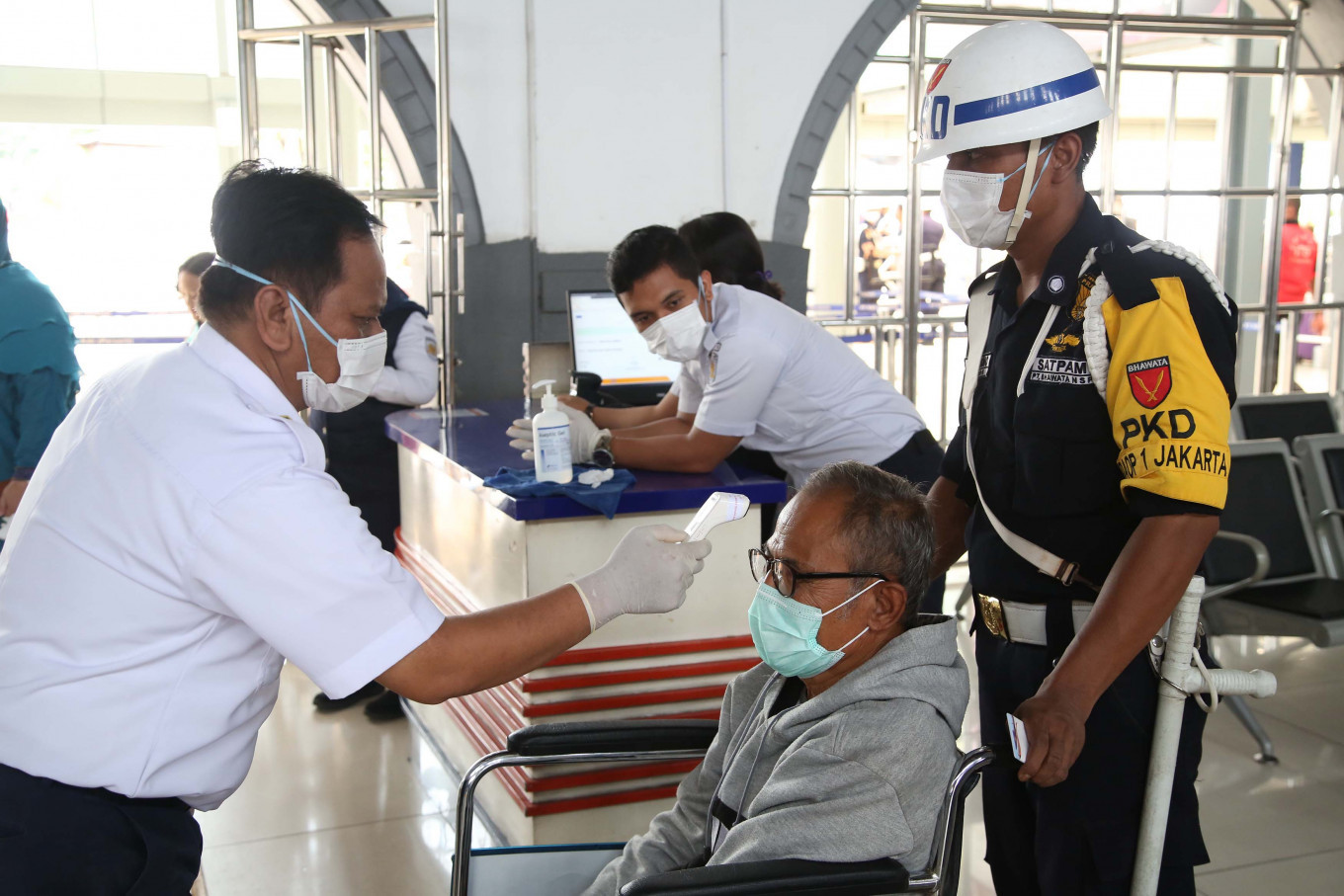Popular Reads
Top Results
Can't find what you're looking for?
View all search resultsPopular Reads
Top Results
Can't find what you're looking for?
View all search resultsTime for drastic measures
Change text size
Gift Premium Articles
to Anyone
 An officer at Pasar Senen Train Station, Central Jakarta on Monday, March 16, 2020 checks the temperature of a long-distance railway passenger before entering the Station's waiting room. Some people go home or go home even though there is already an appeal to be better at home than to travel and gather in a crowd. (JP/ P.J.Leo )
An officer at Pasar Senen Train Station, Central Jakarta on Monday, March 16, 2020 checks the temperature of a long-distance railway passenger before entering the Station's waiting room. Some people go home or go home even though there is already an appeal to be better at home than to travel and gather in a crowd. (JP/ P.J.Leo )
A
fter weeks of relying too much on our native “good immunity” and divine intervention, Indonesia’s method of handling the COVID-19 outbreak has begun to fall apart.
The World Health Organization sent President Joko “Jokowi” Widodo a letter on March 10, containing a diplomatic message; but coming from such an institution it surely conveyed an urgent point about Indonesia’s incompetence in handling the pandemic. One of the message’s recommendations was that Indonesia declare a “national emergency” to handle the outbreak. Indonesia could decide on its own the technicalities of what a “national emergency” entailed.
Five days later, Jokowi finally responded and called on people to stay at home as part of the social distancing policy to contain the spread of COVID-19. His suggestion, unsurprisingly, did not go down very well the following day. People did not stay at home. In Jakarta, workers left home and took public transportation to work.
Later, he delivered a speech reprimanding Jakarta Governor Anies Baswedan for his attempt to force a lockdown by drastically reducing the Transjakarta bus rapid transit and MRT Jakarta services. It created a build-up at stations, utterly defeating the purpose of social distancing. Nonetheless, the idea of a partial or total lockdown for Jakarta is perhaps the best measure to control the spread.
Law No. 8/2018 on health quarantine gives Jokowi the legal basis to implement an “area quarantine”, meaning a city lockdown in the event of “a health emergency that creates global concerns”.
If Jokowi does not opt for even a limited lockdown, he should follow South Korea’s lead by testing as many people as possible and quarantining those who test positive. He has to, very quickly, prepare as many test labs as possible especially in regions where possible community spread has occurred. The President must also order very serious contact tracing for the people who test positive.
In the past two months, however, the government has shown gross incompetence in this regard. Regarding a fatality in Cianjur, West Java, the patient was tested in a hospital in Bekasi; the hospital said the patient tested negative for the virus. Later, the patient went to Cianjur where he got sick again and died. He got tested and the result was negative. Later on Sunday, West Java Governor Ridwan Kamil reported that he had in fact tested positive. His wife and child tested positive, too.
There has not been any clear explanation from the central government about the puzzling circumstances in Cianjur.
The government has also failed to instruct health agencies in the regions to trace the movement of hundreds of Indonesians who went to a large gathering in Kuala Lumpur, where a number of people were infected with the virus.
If the way Indonesia detects the virus and traces the movement of possible cases is not going to change, Jokowi should implement at least a partial lockdown of several areas, especially Greater Jakarta. If he chooses to do neither, there is the possibility of many avoidable deaths — for which President Jokowi will need to take responsibility.









